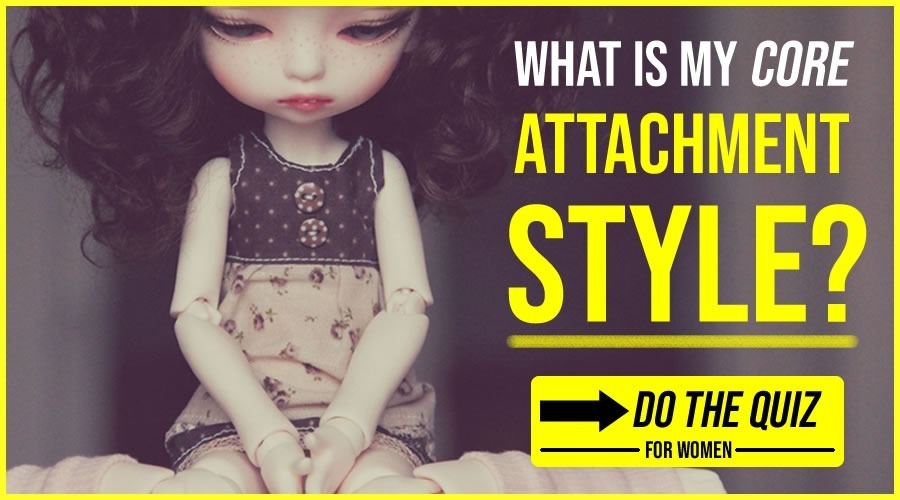NCRW
How to Make an Avoidant Miss You: 10 Proven Ways
Author: Sarah Meyer & Renée Shen
When Bowlby published his theory on attachment styles, I’m sure even he hadn’t thought of the long lasting impact it would have on our understanding of relationships.
Since then, there has been extensive research on the various styles of attachment he had talked about, and the relevance of these in predicting our behaviours in the adult relationships we form.
So, what are these attachment styles anyway?
Let’s take a quick look before diving into the details of avoidant attachment style and how to make an avoidant miss you!
Table of Contents
The Four Styles of Attachment
According to Bowlby, attachment is all about how children form a connection with their primary caregivers and how this influences the way these children learn to connect with others in adulthood.
Bowlby identified four types of attachment styles. In short these are:
Secure
These are the people who have had adequate maternal care, nurturing and responsiveness from caregivers as babies.
These people develop into confident and resilient adults who are able to form long lasting relationships without the fear of being abandoned.
You can learn more about how secure attachment style develops here.
Avoidant
`s here.Avoidant attachment style is sometimes referred to as dismissive avoidant.
Due to maternal deprivation in the early years and unmet emotional needs, avoidants shut off their attachment system to avoid feeling the pain of not being nurtured and not being responded to.
They usually avoid getting emotionally close to others, and often (but not always) avoid getting into long term, intimate relationships.
Anxious
Anxiously attached people are always on edge in their relationships, worried about being abandoned and betrayed by their lover.
They’re unable to understand what behaviours might get approval and love from others, so they remain anxiety-driven and fearful well into their adult relationships.
Disorganized
Disorganized attachment style is also known as fearful avoidant attachment.
This is the rarest type of attachment and is developed due to abuse in childhood.
The person with disorganized attachment is unlikely to feel safe with intimacy, usually because their caregiver(s) responded to them with abuse or violence in infancy and childhood.
This leads to rage, anger and both a high level of avoidance and anxiety in intimate relationships in adulthood.
An easy way to remember disorganized attachment style is to consider it to be a combination of high levels of the anxious and avoidant attachment styles.
(Why is this important? It is because your core attachment style largely dictates and influences what happens in your relationship. Thus it’s imperative you understand your core attachment style!)
What Is It Like In A Relationship With An Avoidant?
Now let’s explore further what it might be like to get into a relationship with someone who has an avoidant attachment style, and more specifically, how to make an avoidant miss you!
Imagine finding someone who you really like and are attracted to.
Someone who you feel an initial connection and spark with, but then you quickly start picking up on small cues that they might not be able to reciprocate your desire for closeness and intimacy in the way you had hoped.
You may find that they:
- Balk at intimacy
- Are cold
- Won’t talk about how they feel
- Cannot listen to how you feel
- Don’t seem to fully trust you (or the relationship)
- Push you away; or
- Are highly critical of you (and even themselves)
Some further signs that indicate your partner might have an avoidant attachment style are:
- They’re more focused on their own needs and wants than their partners
- They prefer their independence to the mutual reliance/dependency of relationships
- They’re emotionally closed off
- They try not to get emotionally involved in relationships
- They avoid conflicts
- They see their partners as needy even if they are not
If you’re with someone who is unwilling to connect with you emotionally, then how would you build a connection with them?
What is the secret to getting an avoidant to open up to you - enough to miss you?
Well:
It might help to look past the closed off behaviours of your lover, and focus on and understand why avoidants are the way they are.
Ask yourself what makes them feel the need to close off and build a wall around themselves?
MORE: 11 Genius Ways To Communicate To An Avoidant Partner.
Some of the reasons that have been identified as possible precursors to developing an avoidant personality are:
- Childhood abuse
- Lack of physical touch and ways of affection
- Parents lacking the knowledge of properly dealing with a child or having an avoidant attachment style themselves
It is important to understand where an avoidant is coming from so that you can meet them where they are comfortable, and build a healthy relationship with them.
So, if your partner is showing signs of being an avoidant, then you’ve come to the right place!
Because in this article we will be discussing the ways you can get them to open up and create a loving, long lasting bond.
Let’s look at 10 proven ways that you can try out!
#1: Reassure Them
Another term for this is partner buffering.
This is a sure way on how to make an avoidant miss you!
What you need to do is to support your avoidant partner with sensitive reassurance. Reassurance allows you to regulate their inner anxiety and fears.
People with an avoidant attachment style will automatically assume that you won’t be there when they’ll need you.
This has little to do with you and more to do with the way they were treated in their past.
Examples of ways to offer gentle, sensitive reassurance are:
- Tell them you’ll love them no matter what (except you cannot stay with them if they abuse you of course, you cannot tolerate such behaviour)
- Let them know that you understand this is difficult
- Tell them that you appreciate the effort they’re putting into the relationship
- Whilst you say these things, if you can be:
- Supportive
- Gentle; and
- Emotionally present with them
Then you can actively assuage their stress and challenge their belief that they don’t have anyone to lean on.
You can also help them feel more secure and create a stronger bond with them.
This stronger emotional bond then “activates” their attachment system, causing them to attach deeper to you, and be far more likely to miss you.
#2: Give Them Space
People with an avoidant attachment style thrive on independence and self-reliance (or at least that’s their belief).
If you're securely attached, you’d intuitively understand that their level of independence is not genuine independence, but rather, avoidance.
No matter how dysfunctional and detrimental this is to their relationships as well as their emotional and mental health, it’s their equilibrium.
So if you can offer them the gift of space, then this is a way of meeting them where they’re comfortable.
If you try to intrude, they will get uncomfortable and pull away immediately.
A surefire way to make an avoidant miss you would be to meet them where they’re at by respecting their alone time, and even ask them if they need it!
This will allow the avoidant to trust you a lot more, and therefore achieve our desired aim: to get the avoidant to:
- Emotionally attach to you
- Trust you; and
- Connect with you enough to miss you
If you approach them by saying things like:
“Do you want to talk about it?”
And:
“I’m here if you need me”
This will sit better with them. Saying things like “tell me what happened” or “Why won’t you let me in, I can help!” will put too much pressure on someone who withdraws to find comfort.
Once you take that pressure off of them, they’ll find their own way back to you.
MORE: 8 Signs An Avoidant Loves You & How To Inspire MORE Of It.
#3: Be Soft & Comforting, Not Confrontational & Aggressive
Confrontations can help at times, but not with someone who actively avoids it!
And not with someone whose entire life is oriented around avoiding emotions and intimacy.
Confrontations and/or conflicts can be a way to go deeper in a relationship and build understanding and trust - if both partners are securely attached.
But they’re not a good place to start if you’re dealing with an avoidant.
Avoidants by nature do not like to be emotionally vulnerable, because they can’t without facing enormous stress.
They also don’t want to experience specific emotions like fear of rejection and anger, which they’ve been keeping at bay for possibly decades.
By using a softer tone and words of encouragement, you can make sure that people with an avoidant attachment style don’t get defensive like they would during confrontations.
They’ll feel less threatened by your presence and want to come back to you when you’re not around to get that feeling of comfort again!
#4: Try Not to Hold Grudges
If you want to know how to make an avoidant miss you, like really miss you, there’s something you will need to develop in yourself for that – and that is patience.
Recommended: When Do Guys Start To Miss You After A Breakup? 11 Signs + Masculine Psychology.
As we know, people with an avoidant attachment style tend to be emotionally closed off.
When a fight occurs between you and you stretch out the negative associations by holding your own grudge, that will only validate their subconscious beliefs that they cannot truly trust anybody.
The challenge is that avoidants can be extremely difficult because they may push you away, lie to you and/or reject you too.
Because of that, it gets harder and harder to not hold grudges. But if you have it in the back of your mind that holding a grudge against them will only be detrimental to your efforts to form an emotional connection with them, that can inspire you to choose another approach.
I mean imagine someone who has a hard time opening up emotionally, why would that make them want to be around someone who makes them feel bad about themselves?
Obviously, they’ll pull away even more and hide in their shell.
With the bigger issues, you can try and find ways to communicate in a healthy way but for the smaller ones, have a think:
Is there a way to find some middle ground besides shouting, blaming and being hostile?
In any relationship there should be a sense of ‘us vs. the problem’ rather than a ‘you vs. me’ mentality. But especially so with an avoidant!
#5: Re-write A New Story With Them
The avoidant usually has the following underlying beliefs (which they're not usually aware of) about relationships as an adult:
- If I get close to someone, I will only be rejected
- Relationships are for needy, dependent people
- No relationship will really last long term
- People never have any good intent
- No one could truly love me the way I want to be loved
- I’m not worthy (though many avoidants won’t admit it, this is essentially how they feel beneath all their walls)
This story (or these beliefs) develop as a result of being emotionally neglected as a baby. Their caregiver(s) did not show that they’re worthy of nurturing and being responded to.
How could you not develop a negative belief about yourself and about relationships with that kind of treatment?
So how can you help the avoidant regain a sense of hope and positivity in the context of relationships?
- You can talk to them about their childhood and validate their feelings about being emotionally abandoned.
- You can help them think about their negative experiences in other ways.
- Ask comforting questions that allow them to think of alternatives as well as make them feel more inquisitive and hopeful. This might help an avoidant feel safer with you.
Some examples of such questions are:
“How can I make you feel safe?”
“Do you think that somewhere deep down inside, your mother/father loved you, but just couldn’t overcome their own blocks to intimacy?”
“Can you find any real life examples of long term committed and trustworthy relationships?”
“Did anything good come out of your difficult childhood?”
“What can you do about it now?”
#6: More Fun, Less Talk
We talked about how to make an avoidant miss you by giving them space, and this is an extension to that!
Because avoidants generally run from situations centered around emotions and feeling vulnerable, what if you tried to show them a good time instead?
That way you can focus on building your relationship with them. More specifically, through novel and playful experiences, you can actually build positive associations with you and your relationship!
In any relationship, when you can build more positive associations than negative associations, that dramatically increases the chances that your lover will miss you!
Here are some examples of fun things you can do with an avoidant:
- Play a sport with them
- Go on a rollercoaster with them
- Go on a unique holiday experience like swimming with the dolphins or scuba diving etc
- Play board games
- Play online games with them
#7: It’s In the Small Things
Studies have shown that avoidants are bad at asking for help. They would rather shut down and spend time alone for days rather than reach out to others for assistance.
This is because they have cynical internal working models, and don’t want to feel the emotions and stress related to that.
Maintaining excessive autonomy or “independence” allows them to contain the emotions and stress that they may have to feel, should a relationship or partner trigger them to feel emotions in any way.
Knowing how to be there for a lover who actively pushes you away will be the real key to understanding how to make an avoidant miss you.
So:
How can you be there for someone who pushes you away?
You show them that you love them through small gestures. Here are some suggestions:
- Leave them notes saying you love them and that you’re there for them when you know they’re down
- Wait up for them when you know they had a tough meeting at work
- Get them their favorite ice-cream as a pick me up rather than ask them to talk about their issues
These little thoughtful acts will definitely pave the way for a stronger connection that is built on respect, and they will help to make an avoidant miss you when you’re not around.
MORE: How To Make Him Miss You? 12 Proven Ways To Be On His Mind.
#8: Open Up (Go First)
Avoidants are not only bad at opening up themselves, but also find it difficult to read their partner’s emotions.
According to some studies, avoidants are generally worse than others at picking up on their partner’s emotional state.
This might be because they are so closed off emotionally to themselves that they aren’t capable of acknowledging the emotional state of others.
So, what can you do about this?
By doing something we discussed in our popular article on Avoidant Attachment Style: Causes & 8 Obvious Adult Signs: you can lead the way and tell them how you’re feeling and what it is that you need from them.
This way, your communication is clear, which is something that many avoidants usually don’t get to experience.
However, we cannot neglect to mention the fact that avoidants can often be quite judgemental and controlling.
They judge people to keep them at bay, and because they never really developed high self worth.
Knowing this fact, you want to tread carefully if you’re going to be vulnerable to the avoidant.
Only do it when you want to inspire them to relax and show more of themselves, or when you’re sure they’re in the mood to connect.
You really don’t want to do it just for the sake of it - and especially not just because you feel the need to be seen or heard by them, because there’s always a chance that they may not give you that.
#9: Take Your Own Time (Invest In Yourself)
It’s important that when you are in a relationship with an avoidant, you take out time for yourself and truly enjoy that too.
This will help them feel like they can relate to you (ie: he or she is like me!!) - and we all want to connect with the people who are like us. Not to mention, we tend to miss those we connect with - not those we know are nothing like us!
If you take time for yourself, this will also make them feel like there is no pressure on them to constantly take care of you and that you, just like them, enjoy your own company.
This can also be a great way to model for them how ‘me time’ should be healthy rather than a way to be reclusive.
#10: Express Warmth, Love & Affection
At the end of the day, even avoidants want just one thing: love.
It is because of a lack of love that avoidants withdraw from others and push people away, so they do not get hurt again.
When you break that barrier and consistently show them genuine warmth, love and affection, you may be able to “re-activate” their desire to attach.
Also, they might start believing that there is someone who is willing to love them and truly be there for them, something that is alien to them.
The Bottom Line
If you want to know how to make an avoidant miss you – the thing you must focus on always, is building that emotional connection.
And you can do it by:
- Showing them your own vulnerabilities
- Loving them in quirky, imperfect and bite-sized ways; and
- Showing them that if they do the same, this will only draw you closer to them and make you more loyal to them rather than scaring you away!
In short:
Once you have noticed that your partner is displaying signs of an avoidant attachment style, there are lots of things you can do to inspire them to miss you.
Remember this:
Even avoidants want love and connection, and it is not always a lost cause.
Finally, have you discovered whether you have anxious, avoidant or secure attachment patterns? CLICK HERE to find out with our specially crafted women-specific 10 Question Quiz!
(Why is this important? It is because your core attachment style largely dictates and influences what happens in your relationship. Thus it’s imperative you understand your core attachment style!)
If you would like help with your personal situation or to get coaching with Sarah, CLICK HERE.


Sarah Meyer
Sarah is a Shen Wade Media Certified Coach.
She has a Masters in psychology and works as a special education advisor in early childhood. She lives in Auckland, New Zealand, with her partner and two children.
She has a passion for evolutionary psychology, attachment theory, and personality psychology.
Renée Shen
Author & Editor For National Council for Research on Women. Founder of the popular women's dating & relationship advice website, The Feminine Woman and co-founder of NCRW.
P.S. I hope you've enjoyed this article. Here are some other articles that I think you'd really like too...
Preoccupied Attachment Style: Beware The 8 Signs You Have It
3 Powerful Ways To Self Soothe Anxious Attachment
New Relationship Anxiety: 9 Crippling Symptoms, Causes & How To Overcome It
© Copyright National Council for Research on Women. All Rights Reserved



